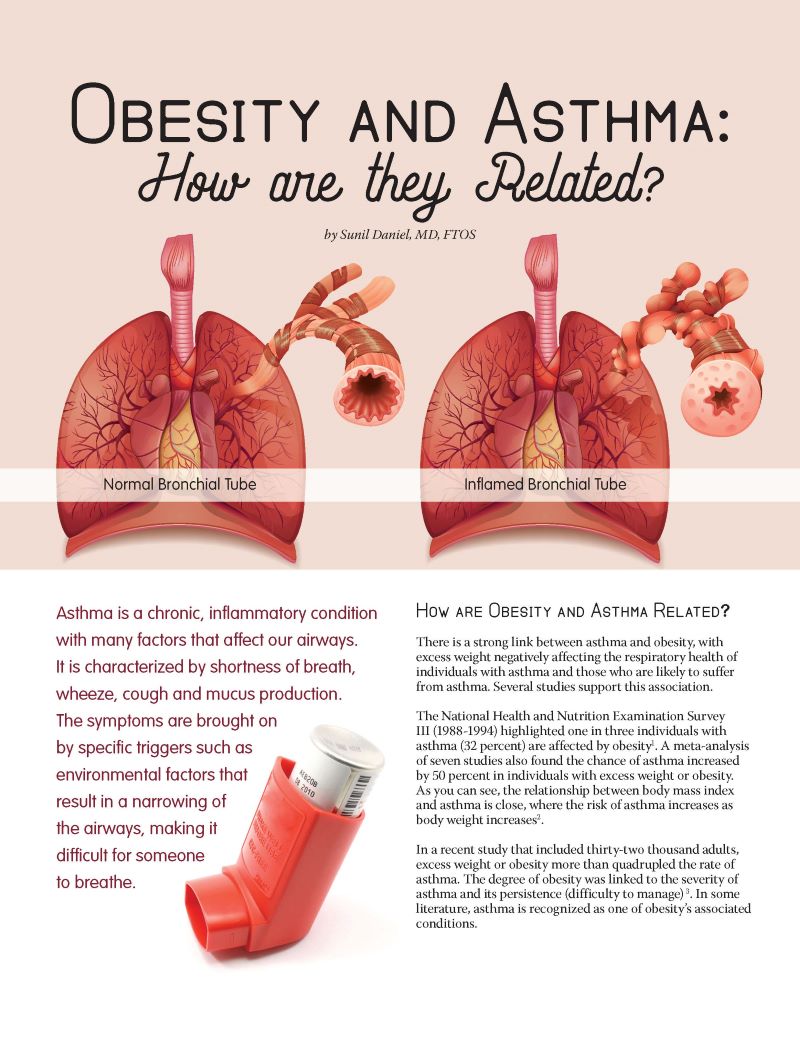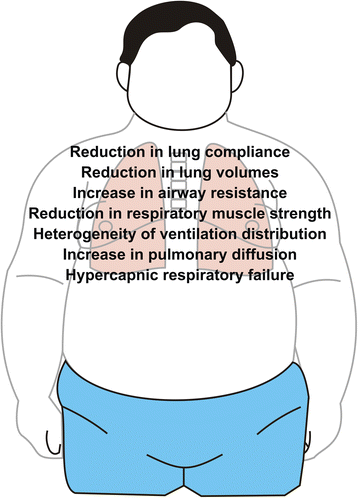How Obesity Affects Your Breathing
Navigating through the complex relationship between obesity and respiratory problems can be quite overwhelming. In this article, we aim to shed light on the specifics of how the excessive body weight can become a significant burden on your lungs and overall breathing protocols. Hold no presumptions, as we traverse the often-underestimated domain of the profound impact obesity can have on the essential life process of breathing and, more crucially, how this intricate connection could translate into long-term health consequences if left neglected.

Understanding Obesity
Obesity is a prevalent issue for many people globally and knowing more about the specifics of this health issue is beneficial for anyone seeking to improve their overall health.
Definition of Obesity
We refer to obesity as a medical condition in which excess body fat has accumulated to the extent that it may negatively affect an individual’s health. Obesity is typically measured and defined using the Body Mass Index (BMI), which is a measure of weight in relation to height. A BMI of 30 or higher is categorized as obese.
Causes of Obesity
The causes of obesity are multifaceted and generally result from a combination of factors. In many cases, it is down to an energy imbalance – consuming more calories than one can burn off through physical activity. Other contributing factors may include genetics, environment, metabolism, and certain medical conditions or medications. Emotional factors such as stress and lifestyle habits also play a significant role.
Risks associated with overweight and obesity
Obesity is linked with various health risks. These range from minor ailments, such as joint discomfort, to chronic diseases like heart disease, type 2 diabetes, and certain types of cancer. Obesity can also cause significant strain on the body’s respiratory system, which we’ll dive into next.
The Link Between Obesity and Respiratory System
Surprisingly, many individuals are unaware of the impact obesity can have on the respiratory system. The fact is, obesity can result in noticeable changes in lung function and the respiratory system’s overall performance.
Effect of obesity on lung function
Perpetual states of obesity can lead to alterations in the mechanical behavior of the lungs. This disrupts the regular patterns of breathing and reduces lung volumes. The overall effect is that individuals with obesity often find themselves exerting more energy to breathe, which can lead to breathlessness and fatigue.
Impact on the respiratory muscles
The added weight on the chest wall due to obesity can negatively affect the strength and endurance of the respiratory muscles. This decreased muscle functioning can make the breathing process strenuous, especially during increased physical activity or during respiratory illnesses.
Changes in the respiratory system due to obesity
Obesity has also been linked to structural changes in the respiratory system. These can include diminished lung expansion, increased airway resistance, and alterations in the functionality of the muscles responsible for breathing.

The Influence of Obesity on Respiratory Disorders
The relationship between obesity and respiratory disorders is a crucial part of understanding how weight gain can have a direct effect on breathing and overall lung health.
Obesity and asthma
There is a proven correlation between obesity and asthma. Scientific studies show that obesity can increase the risk of developing asthma and can make asthma symptoms worse. Inflammation due to excessive fat tissues can lead to a thickening of the airway walls, making breathing more difficult.
Obesity-related hypoventilation syndrome
Obesity-related hypoventilation syndrome (OHS), notably higher in obese individuals, is a condition where poor respiration leads to decreased oxygen and increased carbon dioxide in the blood. This syndrome tends to occur in individuals with severe obesity and results in symptoms like fatigue, daytime sleepiness, shortness of breath and even heart failure in severe cases.
Sleep apnea and obesity
Obesity drastically increases the risk of obstructive sleep apnea (OSA), a disorder marked by periods of halted or shallow breathing during sleep. Excess body fat can cause the airway to narrow, making it more likely for breathing to momentarily stop during sleep.
Other obesity-related respiratory disorders
Other than the primary conditions mentioned, obesity can also contribute to various other respiratory disorders. These can include chronic obstructive pulmonary disease (COPD), pulmonary hypertension, and increased risk of pneumonia.
The Mechanisms of Respiratory Complications in Obesity
It is important to look deeper into the reasons why obesity is so closely linked to respiratory ailments.
Role of adipose tissue in lung disease
Adipose or fat tissue secretes adipokines – proteins that have various effects on the body. Several of these substances can cause inflammation which affects the lungs, leading to disease.
Inflammatory response and obesity
Obesity is often accompanied by low-level systemic inflammation. This inflammation can trigger a response in the respiratory system, leading to lung complications such as asthma and COPD.
Mechanical burden of extra body weight
Extra body weight adds an extra strain on the body’s musculoskeletal system, including the muscles used for breathing. Breathing can become significantly more laborious for individuals carrying excess weight, especially around the abdominal area.

Impact of Obesity on Breathlessness
Another crucial aspect of the conversation around obesity and lung health is the role of obesity in causing breathlessness.
Understanding the concept of breathlessness
Breathlessness, also referred to as dyspnea, is a sensation of uncomfortable, labored, or difficult breathing. It’s a common symptom in many respiratory and cardiovascular conditions but can be exacerbated by obesity.
Influence of obesity on perceived exertion
Studies have shown that obesity can escalate the perception of exertion, making relatively simple tasks seem significant, which can intensify feelings of breathlessness.
Connection between weight gain and breathlessness
Weight gain, especially around the midsection, can compress the diaphragm and lungs, causing difficulty in taking deep breaths and resulting in breathlessness.
The Effect of Weight Loss on Breathing
On a more hopeful note, weight loss can have a substantial positive impact on lung health and breathing difficulties for individuals struggling with obesity.
Impact of weight loss on lung function
Even modest weight loss can result in improvement in lung function. Losing weight can help to reduce the strain on respiratory muscles, increase lung volumes, and reduce inflammation, thereby improving overall respiratory health.
How dietary changes can improve breathing
A nutrition-driven approach to weight loss can have a direct impact on breathing. Reducing intake of calorie-rich, low nutrient foods and adopting a more balanced diet can effectively tackle weight issues and consequently, improve breathing.
Effect of physical activity on respiratory health
Regular aerobic exercises, which increase heart rate and improve lung capacity, can significantly benefit individuals facing obesity-related breathing difficulties. Exercise is a natural way to lose weight and reinforce lung and respiratory muscles.

Impact of Obesity on Lung Capacity and Ventilation
The effect of obesity on lung capacity and ventilation is another essential aspect of how obesity affects breathing.
What is lung capacity?
Lung capacity refers to the total amount of air that the lungs can hold. This capacity can be reduced by conditions like obesity.
How obesity affects lung capacity
Obesity can severely affect lung capacity, especially when the excess weight is carried in the abdominal region. This extra weight can restrict the lungs, preventing them from fully expanding and filling up with air.
How obesity impairs ventilation
As the lungs struggle to expand, it becomes harder to inhale and exhale fully, causing impaired ventilation. This results in less oxygen flowing into the bloodstream and inadequate removal of carbon dioxide.
Role of Obesity in Chronic Obstructive Pulmonary Disease (COPD)
Obesity has a significant role in how COPD, a group of progressive lung diseases, affects the body.
Understanding COPD
Chronic Obstructive Pulmonary Disease, or COPD, comprises conditions such as emphysema and chronic bronchitis that cause airflow blockage and breathing-related problems.
How obesity complicates COPD
In people with COPD, obesity can worsen symptoms, complicate management, and increase the risk of hospitalization. The additional weight can make breathing more difficult and exacerbate the shortness of breath that is a common symptom of COPD.
Management of COPD in obese patients
Managing COPD in obese patients involves addressing both conditions. This could mean combining traditional COPD treatments with interventions such as dietary changes, physical activity enhancements, and cognitive-behavioural therapies aimed at promoting weight loss.

The Influence of Childhood Obesity on Breathing
Sadly, childhood obesity has become a public health crisis, having a serious impact on the respiratory health of children.
Childhood obesity statistics
Childhood obesity is a growing problem worldwide. The World Health Organization estimates that over 41 million children under the age of five are overweight or obese.
Respiratory consequences of childhood obesity
Childhood obesity can lead to various respiratory issues, ranging from asthma to sleep disorders. Early onset of these issues can continue into adulthood, causing chronic complications.
Preventing childhood obesity and its breathing complications
Prevention is always better than cure, and this is particularly pertinent when it comes to childhood obesity. Encouraging healthy habits – such as regular physical activity, a balanced diet, and sufficient sleep– can help prevent obesity and its breathing complications.
Overcoming Breathing Difficulties Caused by Obesity
Overcoming obesity-related breathing difficulties often involves a concerted effort to lose weight, alongside supportive therapies.
Weight loss strategies
Adopting healthier lifestyle choices is vital to weight loss. This includes a balanced diet and regular exercise, along with effective stress management. In cases where lifestyle changes are not effective, medication or even surgery may be considered.
Respiratory therapy for obese individuals
Respiratory therapy can also play an essential role in managing breathing difficulties caused by obesity. Techniques such as pursed-lip breathing and belly breathing can promote more efficient gas exchange in the lungs.
Surgical options and their impact on breathing
When other interventions aren’t effective, surgical options such as bariatric surgery may be considered. Bariatric surgery can lead to substantial weight loss and improvement in respiratory conditions.
In conclusion, there is a significant link between obesity and respiratory complications. However, the good news is that a commitment to a healthier lifestyle can have a positive impact on respiratory health and wellbeing.

